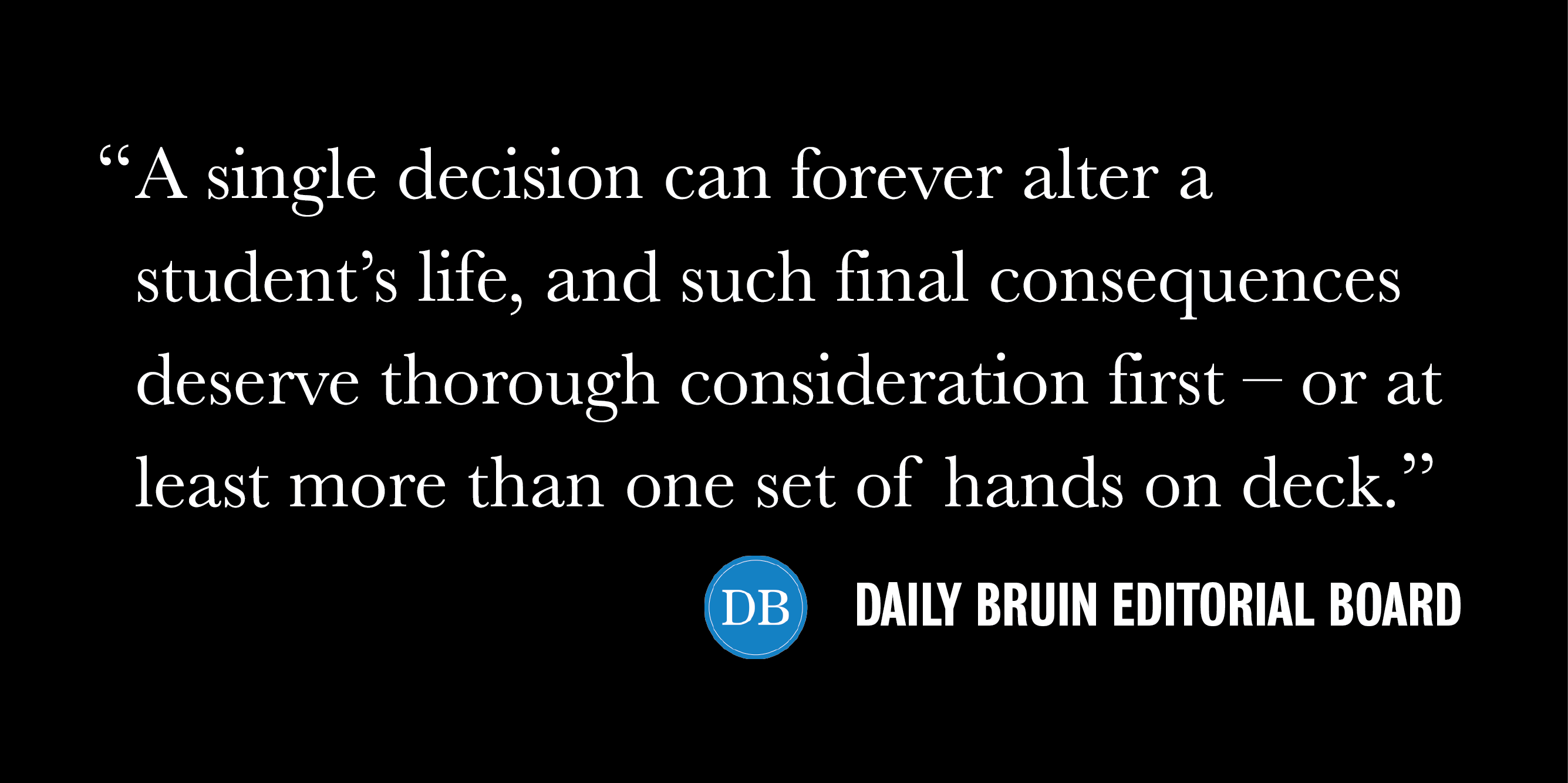Editorial: UCLA’s prosecution of conduct code violations can be arbitrary without oversight

By Editorial Board
Sept. 2, 2019 8:41 p.m.
When deciding violations of the student code, UCLA is the judge, jury and executioner.
That is, only a few pairs of eyes decide a student’s fate.
The UCLA Student Conduct process kicks into gear if a student is accused of violating the school’s code of conduct.
Once it does, the dean alone decides if there is enough evidence that the student violated conduct code, possibly resulting in the case being brought to a student conduct committee. After the committee reviews the case, their report is delivered to the vice chancellor, who ultimately makes the final decision. Essentially, UCLA’s procedure works with single arbiters on both sides of the process.
In other words, the margin of error is wide, and the stakes are high.
As it currently operates, UCLA’s student conduct process is deeply flawed. Not only does it create a situation in which the vice chancellor is solely responsible for deciding the fate of a student, but it fails to involve multiple people in making that decision. With complicated issues condensed down to one person’s discretion, there’s tremendous room for error and potential bias to seep into an ultimate decision – one that could affect a student’s livelihood permanently.
Student code cases can result in probation, suspension or even dismissal from the university if the vice chancellor deems it appropriate. A single decision can forever alter a student’s life, and such final consequences deserve thorough consideration first – or at least more than one set of hands on deck.
This was the case of Alethea Sung-Miller, a third-year electrical engineering student who met with assistant dean Hilary Crocker after allegedly violating the code of conduct during an incident with her roommate. She said the student code is being used against her, when it should have been used to defend her.
Students shouldn’t feel re-victimized by the process of seeking justice – and they wouldn’t if administrators were held more accountable for their decisions.
Title IX investigations, for example, now require a live hearing for certain cases rather than a single investigator in order to guarantee what a state appellate court called “fundamental fairness” in its ruling earlier this year. Even the courts have determined that one individual cannot solely make important decisions that affect the livelihoods of students.
It’s clear UCLA can, and did, change its processes, but it shouldn’t take a court decision for the university to ensure decisions involving students are made fairly.
The current review process involves a student conduct committee, made up of multiple students, faculty and staff. However, only a single person, the dean, decides if there is enough evidence for a case. And only a single person, the vice chancellor, makes the final decision, with no hope for appeal beyond that point.
Granted, a committee could likewise have issues of bias and prejudice. But the chances of that can be mitigated when there is a diverse range of input and perspectives involved when determining a case.
The right to have a trial by jury for criminal cases is guaranteed in our constitution. Our own legal system believes it is an essential part of determining culpability.
It might do UCLA some good to take notes.

